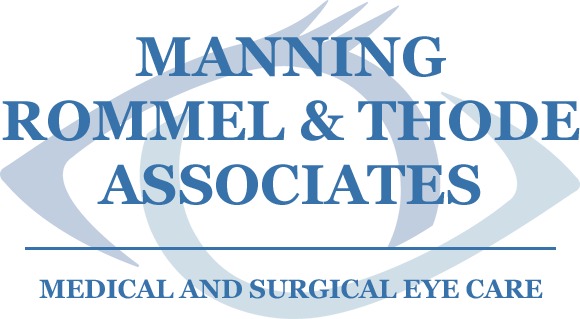Many people think that the only reason to get regular eye exams from our ophthalmologists in Lancaster, PA, is so that they can get the correct eyeglasses. However, eye exams are important for everyone, even those with perfect vision. Regular eye exams are the only way that your eye doctor can detect conditions like glaucoma early so that you can receive the best treatment in a timely manner.

What Is Glaucoma?
Glaucoma is the focus of many eye exams because it is a leading cause of blindness. Nobody likes getting the puff of air in the eye that helps the eye doctor check for glaucoma, but this is one of the most important tests you can get. In its early stages, glaucoma usually has no symptoms, so you will have no other warning that you are developing glaucoma unless you go to an eye doctor for a regular exam. Glaucoma is an eye disease. that develops over time.
Your eyes have several different parts that work together, including the sclera, or outer layer, the iris, and the pupil, where light enters the eye. Your eyes need to be able to drain properly and maintain the right amount of pressure, and when that goes wrong, you may develop glaucoma. The drainage system can become blocked, leading to the loss of optic fibers, leading to vision loss. The optic disc starts to hollow and actually changes shape. There are other risk factors, and if glaucoma develops in one eye, it usually develops in both. If you are not getting regular exams from our ophthalmologists in Lancaster, PA, you may not realize that you are slowly losing your eyesight over a period of years.
Who Is Most Likely to Get Glaucoma?
There are exceptions, but most of the people who get glaucoma have certain risk factors.
- Most people who develop glaucoma are not diagnosed until they are over 60 years old.
- Those of Hispanic, African, or Asian descent are more likely to develop glaucoma.
- Glaucoma may run in families, so you are more likely to develop glaucoma if someone in your family has it.
- People who are very nearsighted or very farsighted are more likely to develop glaucoma.
- Those who take steroids are at higher risk of developing glaucoma.
- Anyone who has had an eye injury may be more susceptible to developing glaucoma, even without any other risk factors.
- If you have high blood pressure or if you are diabetic, you are more likely to develop glaucoma.
Glaucoma Treatment
At this time, there is no cure for glaucoma. In order to treat glaucoma, our ophthalmologists in Lancaster, PA, will use different methods to try to reduce the pressure in your eye. These include medications, traditional surgery, laser surgery, or a combination of these methods. Laser surgery usually takes place in the office of our ophthalmic surgeons in Lancaster, PA, and you can go right home. The surgery itself only takes about 5–10 minutes. The medications for glaucoma include special eye drops that help your eyes drain better or decrease the amount of fluid your eyes are making.
These drops can come with uncomfortable side effects, and you may have to try different medications before you find one you are comfortable with. There is a more invasive surgery that you may need to try if other methods don’t help. This one is more like a traditional surgery. However, there is ongoing research to find better care and possibly even a cure for glaucoma.
Schedule your exam today.
Taking care of your eyes is just as important as caring for the rest of your body. Even if you do not need glasses, you should get a regular eye exam with our ophthalmologists in Lancaster, PA. During your eye exam, our eye doctor will not only check your vision but also look for other conditions that you may not have symptoms for yet, such as glaucoma. At Manning Rommel & Thode Associates, we want to keep your eyes healthy for as long as possible. Don’t wait until you have symptoms, because it may be too late to prevent permanent damage. To make an appointment, you can contact our ophthalmologists in Lancaster, PA, by calling (717) 393-7980 today.
